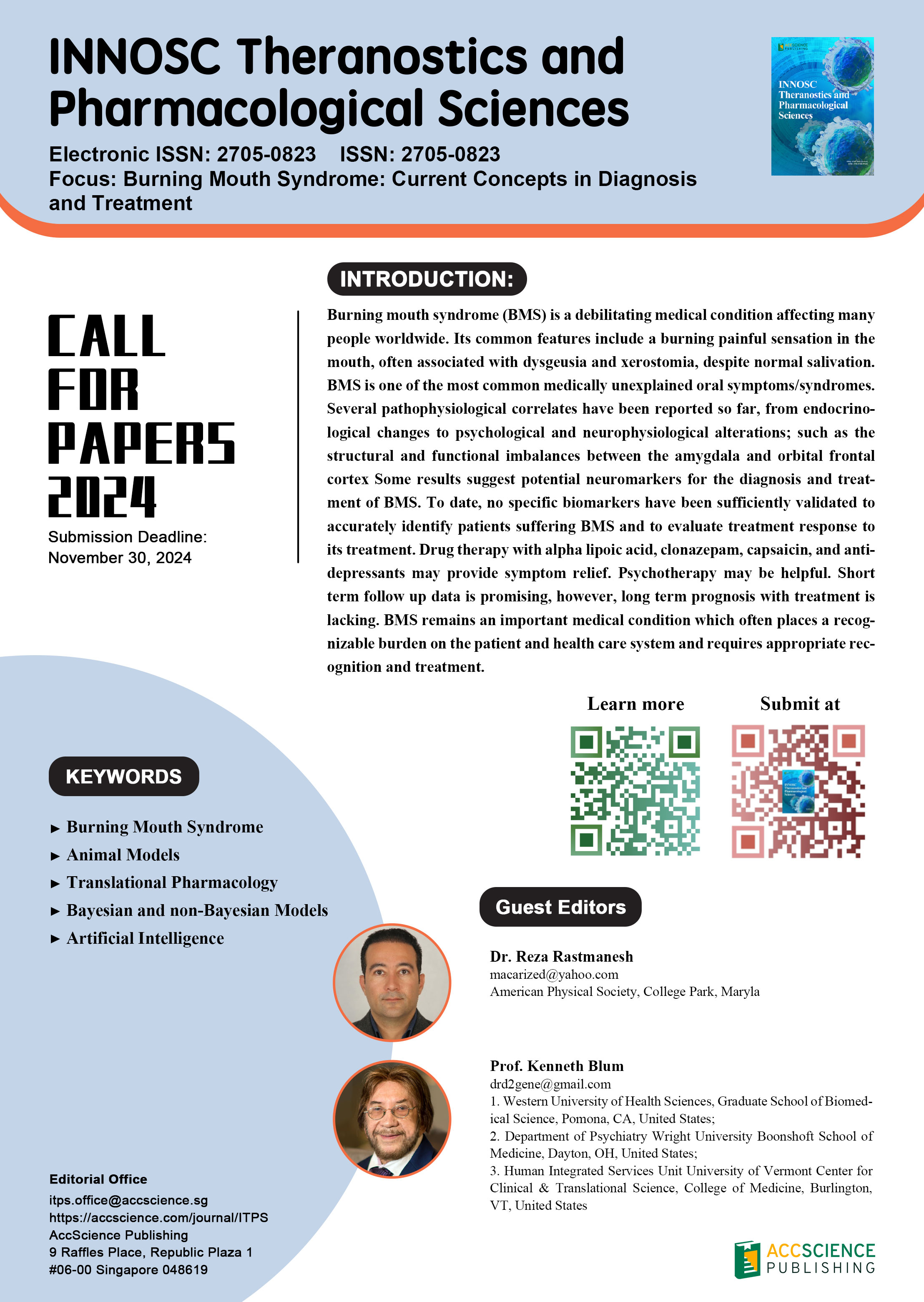
1. Western University of Health Sciences, Graduate School of Biomedical Science, Pomona, CA, United States;
2. Department of Psychiatry Wright University Boonshoft School of Medicine, Dayton, OH, United States;
3. Human Integrated Services Unit University of Vermont Center for Clinical & Translational Science, College of Medicine, Burlington, VT, United StatesGenetics of Alcoholism; Neuropsychiatry and Genetics; Nutritional Genetics; Pharmacogenetics

Burning mouth syndrome (BMS) is a debilitating medical condition affecting many people worldwide. Its common features include a burning painful sensation in the mouth, often associated with dysgeusia and xerostomia, despite normal salivation. BMS is one of the most common medically unexplained oral symptoms/syndromes. Several pathophysiological correlates have been reported so far, from endocrinological changes to psychological and neurophysiological alterations; such as the structural and functional imbalances between the amygdala and orbital frontal cortex Some results suggest potential neuromarkers for the diagnosis and treatment of BMS. To date, no specific biomarkers have been sufficiently validated to accurately identify patients suffering BMS and to evaluate treatment response to its treatment. Drug therapy with alpha lipoic acid, clonazepam, capsaicin, and antidepressants may provide symptom relief. Psychotherapy may be helpful. Short term follow up data is promising, however, long term prognosis with treatment is lacking. BMS remains an important medical condition which often places a recognizable burden on the patient and health care system and requires appropriate recognition and treatment.
This special issue welcomes articles focusing on, but not limited, to the following topics:
- Novel markers, biomarkers and potential neuromarkers for the diagnosis and treatment of BMS.
- Clinical trials and case studies on BMS.
- Application of Artificial Intelligence for early diagnosis of BMS.
- Novel application of Bayesian optimizations and Bayesian simulation and other models in translational pharmacology.
- Orofacial Pain Management.
-Application of supplements, natural compounds and complementary/ancillary medicine.
- Development of efficient Bayesian and other spatial models for pharmacological data.
- Animal models in the study and treatment of BMS.
- Protocols, reviews, systematic reviews and meta-analyses, mechanistic papers.


